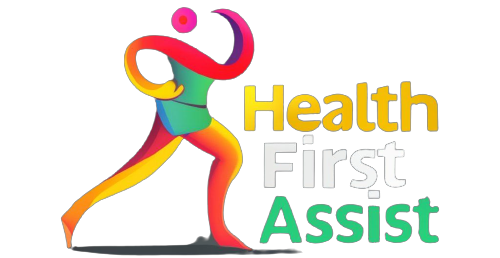Healthy Hydration: How Much Water Should I Drink a Day for Optimal Well-being?
In our quest for a healthy lifestyle, we often overlook one crucial element: proper hydration. Water is the elixir of life, and understanding how much water we should drink daily is essential for optimal well-being. In this article, we delve into the world of healthy hydration, providing expert insights and practical tips to help beginners improve their overall health and wellness.
The Importance of Hydration for Overall Well-being
Hydration plays a crucial role in maintaining overall well-being. Our bodies are composed of approximately 60% water, highlighting the importance of this essential element. Water is involved in almost every bodily function, and its benefits extend beyond quenching thirst.
Proper hydration helps regulate body temperature, allowing us to stay cool and perform at our best. It supports healthy digestion by aiding in the breakdown and absorption of nutrients. Water also plays a vital role in eliminating waste and toxins from the body, promoting optimal organ function.
When we are properly hydrated, our energy levels are enhanced, and our cognitive function is optimized. Water keeps our joints lubricated, preventing discomfort and supporting mobility. It also helps maintain healthy skin, as hydration contributes to a radiant complexion.
By recognizing the importance of hydration for overall well-being, we can prioritize water intake and make conscious efforts to stay hydrated throughout the day.
The Optimal Daily Water Intake
The question that often arises is, “How much water should I drink a day?” The answer is not as straightforward as we might think. The widely recommended standard of drinking eight glasses of water a day is a good starting point, but individual needs may vary based on factors such as age, weight, activity level, climate, and overall health.
To determine your optimal daily water intake, consider these guidelines:
- Listen to Your Body: Pay attention to your thirst cues. Thirst is your body’s way of signaling that it needs hydration. Drink water whenever you feel thirsty.
- Consider Your Activity Level: If you engage in physical activities or exercise regularly, you may need to increase your water intake to compensate for the fluid loss through sweat.
- Assess Your Urine Color: The color of your urine can be an indicator of your hydration status. Aim for a pale yellow color, indicating proper hydration. Dark yellow urine may indicate dehydration.
- Adjust for External Factors: Environmental conditions, such as hot weather or high altitudes, can increase your water needs. Be mindful of these factors and drink accordingly.
Water is vital for our bodies to function optimally. It helps regulate body temperature, supports healthy digestion, and aids in toxin elimination. By staying adequately hydrated, we can prevent many health issues and promote overall well-being.
– Dr. Sarah Thompson, a renowned nutritionist, emphasizes the importance of hydration in maintaining overall health.
Practical Tips for Healthy Hydration
To ensure you stay adequately hydrated, consider implementing these practical tips in your daily routine:
- Start Your Day with Water: Kickstart your morning by drinking a glass of water. This helps rehydrate your body after a night of sleep and jumpstart your metabolism.
- Carry a Water Bottle: Keep a reusable water bottle with you at all times. This serves as a reminder to drink water throughout the day and makes it easily accessible.
- Set Reminders: In our busy lives, it’s easy to forget to drink water. Set reminders on your phone or use apps that prompt you to hydrate regularly.
- Infuse Your Water: If plain water feels monotonous, infuse it with natural flavors like lemon, cucumber, or mint. This adds a refreshing twist and encourages you to drink more.
Understanding the Signs of Dehydration
Dehydration occurs when the body loses more fluid than it takes in. It can have detrimental effects on our health and well-being if not addressed promptly. Understanding the signs of dehydration is crucial to prevent its negative consequences.
Common signs of dehydration include:
- Increased Thirst: Feeling excessively thirsty is one of the first signs of dehydration. It’s your body’s way of signaling that it needs more water.
- Dry Mouth and Lips: A dry mouth and cracked lips are indicators of dehydration. Lack of sufficient water intake can lead to a decrease in saliva production, resulting in dryness.
- Fatigue and Lethargy: Dehydration can cause feelings of fatigue and sluggishness. When the body is dehydrated, it has to work harder to perform basic functions, leading to a lack of energy.
- Headaches and Dizziness: Dehydration can trigger headaches and dizziness. Without adequate hydration, the brain may not receive enough oxygen and nutrients, leading to these symptoms.
- Dark Urine: Urine that is dark yellow or amber in color is a sign of dehydration. It signifies that the body is conserving water and may not be adequately hydrated.
If you experience any of these signs, it’s important to increase your water intake immediately. Severe dehydration can have serious health consequences, so it’s crucial to address it promptly.
The Role of Water in Vital Bodily Functions
Water is involved in numerous vital bodily functions, making it an essential component for our overall health and well-being. Here are some key roles water plays in our bodies:
- Regulation of Body Temperature: Water helps regulate body temperature by enabling the production and evaporation of sweat. This process cools down the body during physical activity or exposure to hot environments.
- Nutrient Absorption and Digestion: Water plays a crucial role in breaking down food and aiding in the absorption of nutrients in the digestive system. It helps dissolve minerals, vitamins, and other essential nutrients, allowing the body to utilize them effectively.
- Waste Removal: Water is a key component of urine and helps flush out waste products from the body. It aids in the proper functioning of the kidneys, which filter toxins and waste materials from the blood.
- Lubrication of Joints and Tissues: Adequate hydration helps keep joints lubricated, reducing friction and allowing for smooth movement. It also helps cushion and protect organs, tissues, and the spinal cord.
- Cognitive Function: The brain relies on proper hydration to function optimally. Water helps deliver oxygen and nutrients to the brain, enhancing cognitive functions such as memory, focus, and concentration.
- Skin Health: Proper hydration contributes to healthy, glowing skin. It helps maintain the skin’s elasticity, prevents dryness and flakiness, and promotes a youthful appearance.
By understanding the vital roles water plays in our bodies, we can appreciate the significance of healthy hydration in maintaining overall health and well-being.
Conclusion
Healthy hydration is a fundamental pillar of a vibrant and energetic life. By understanding how much water you should drink a day and implementing practical tips, you can optimize your overall health and well-being. Expert insights emphasize the importance of hydration in maintaining vital bodily functions and preventing health issues. Remember to listen to your body’s thirst cues, consider your activity level, assess your urine color, and adjust for external factors when determining your optimal daily water intake. By prioritizing hydration and staying adequately hydrated, you can reap the benefits of improved energy levels, cognitive function, digestion, and overall vitality. Drink up and embrace the power of healthy hydration for a healthier and happier you.
Related Topics
- Keratosis Pilaris: Unraveling the Mysteries of “Chicken Skin”
- Low Blood Potassium (Hypokalaemia): Causes, Symptoms, and Treatment
- Intuitive Eating: The Sustainable Path to Weight Management
- Psychosis and Psychotic Disorders: A Comprehensive Guide
- Anxiety Disorders: A Guide to Symptoms, Causes, and Treatment
Cardio FLEX Reviews: Unveiling the Truth about Cardiovascular Health Support
Cortexi Reviews – Unveiling the Power of the Ultimate Nootropic Formula
Gluconite Review – A Comprehensive Analysis of Safety and Effectiveness
Ikaria Lean Belly Juice Reviews – The Ultimate Weight Loss Solution
Java Burn Reviews: A Revolutionary Approach to Boosting Metabolism
Liv Pure Reviews: to Achieve Your Weight Loss Goals
ProDentim Reviews: Solution for Dental and Gum Problems
Puravive Reviews: A Detailed Analysis of Discovering the Essence
Quietum Plus Reviews: Unlocking the Secrets to Optimal Ear Health and Clear Hearing
Sugar Defender Reviews: The Importance of Blood Sugar Management
Sumatra Slim Belly Tonic Reviews: Discover its Power for Healthy Weight Loss


[…] Healthy Hydration: How Much Water Should I Drink a Day for Optimal Well-being? […]
[…] Healthy Hydration: How Much Water Should I Drink a Day for Optimal Well-being? […]